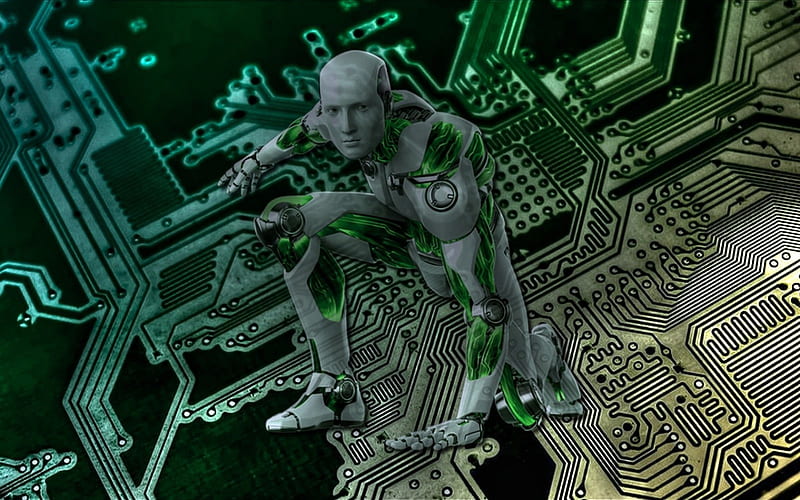When we lose perspective everything we do (and everything we think and say) becomes its own justification, and we can’t see this. We don’t see this inbuilt redundancy and so what we’re talking about here therefore is an unacknowledged state of self-negation, self-cancellation, self-nullification.
In one way – a very superficial sort of way, admittedly – this is no problem at all. It’s nothing to worry about. It’s nothing to worry about because we don’t know anything about it! And it’s not just the case that we don’t know anything about it – we don’t have the capacity to know anything about it. If someone were to come along and try to explain it to us we just wouldn’t get it. We couldn’t get it if we tried. If someone were to come along and explain that we have lost all our perspective we wouldn’t know what they were on about – how could we know what they’re on about, without having any perspective? That’s the whole thing about perspective – we don’t know when it is gone.
When we lose perspective then everything becomes literal. Everything gets literalized – it’s as if someone had just run a steam-roller over it. This is like being a flatlander in flatland – if you’re a flatlander in flatland then you don’t know that you’re in flatland! This is the point made by Edwin A. Abbot in his satirical novel Flatland: A Romance of Many Dimensions – anything other than flatland is inconceivable to us and we’ll make fun of anyone who tries to tell us about it. If you have been dimensionally reduced – ‘shrunk’, so to speak – then whatever you have been reduced to seems normal. Whatever it is you have been shrunk to seems like ‘the only way things could ever be’. Everything is made cruder; everything is down-graded and we get ‘lost in the details’. The truth of our situation becomes something we can no longer see. This is what it means to lose perspective!
When we have lost perspective then whatever world it is that we have ended up in seems normal to us. Whatever world we end up in (as a result of losing perspective) seems to us to be ‘the only world there ever could be’. This is what it is to lose perspective – this is what is meant by the phrase ‘losing perspective’. Flatland no longer seems like flatland because we are flat too. Flatland no longer seems flat because we’ve got nothing else to go on. We see everything with the aid of the yardstick of the FW and so if it doesn’t match our yardstick then we don’t register it. If it doesn’t match the yardstick then we don’t count it as real…
Losing perspective means that we can now only see things the one way. ‘Only being able to see things the one way’ is of course another way of saying that we are literal minded! To see things only the one way (and not know that we are seeing things only the one way) is to be literal minded and when we are literal minded we don’t know it. To be in flatland is not to know that you are in flatland – it is to lose the meaning of the word ‘flat’. ‘Flat’ is not flat for us; flat doesn’t seem flat at all, even though it is. It seems to be ‘not flat’, even though that is all it ever could be.
The question is, what does it mean to be ‘literal but not able to see that we are?’ What does it mean to have no perspective but be unable to see that we haven’t? What does it mean to see things only the one way but be unable to see this? In a word, what this means that we have become unreal. We have become unreal but we don’t have the capacity to know it. We have become ‘unknowingly unreal’ and what a mind-bendingly bizarre situation this is!
The state of zero perspective is the state of self-negation, the state of self-cancellation, the state of self-nullification. NOTHING could be more dramatic than to be negated or cancelled or nullified, and yet I don’t spot it. Not only do I not spot it, I don’t have the capacity to spot it, no matter how many times it is explained to me. Even if I wanted to get it I couldn’t – I might think that I get it, but I don’t. All I can get is what my limited mental yardstick lets me get. To be in the state of self-negation is to be incapable of understanding what the state of self-negation is – it’s a therefore state that is ‘invisible to itself’, a state that is ‘obscured from itself’, ‘hidden from itself’.
In order to see that the state of self-negation actually is the state of self-negation I would have to be able to see the hidden paradox. I would have to be able to see the self-contradiction that is hidden in every literal statement. I would have to be able to see that every definite (or black-and-white) statement perfectly contradicts itself. I would have to be able to see that this is what it means to be a ‘definite statement’. When we have lost all perspective then it is flatly impossible to see this self-contradiction – not only is it impossible to see the paradox, it seems laughably ridiculous, it seems foolishly nonsensical. What sense does it make to say that all definite statements contradict themselves? What sense does it make to say that ‘YES equals NO’, or that ‘UP equals DOWN’? What sense does it make to say that ‘STOP means GO’?
It is our perfect incomprehension of such paradoxical assertions as ‘YES equals NO’ or ‘STOP means GO’ that keeps us stuck in the prison of literalism. This fundamental incomprehension is the literalism! When we are stuck in literalism (when we have been steam-rollered, when we have been literalized) then what this in essence means is that we are using a framework without knowing that we are using a framework. When I say ‘YES’ I really mean ‘YES with regard to the framework’ and when I say NO I really mean ‘NO with regard to the framework’. When I say ‘GO’ I really mean ‘GO with respect to the FW’ and when I say ‘STOP’ I really mean ‘STOP with respect to the FW’. It’s like saying RIGHT or WRONG – neither of these terms (as impressively final as they sound) mean anything without the FW. ‘RIGHT’ means it agrees with the FW and ‘WRONG’ means it doesn’t. So really RIGHT equals the framework and WRONG equals the framework. The framework is all we’re talking about here – it’s ALL the framework…
If the framework is what lies behind the polar designations we are using in our black-and-white description of the world (YES and NO, for example) then these designations ARE the framework. The polar designations don’t obtain the meaning that they have from anywhere else. Nowhere else is acknowledged! But when we can’t see the FW (i.e. when we take it utterly and completely for granted) then we assume that the terms or designations we are using have their own independent meaning. This is of course the illusion that keeps the literal realm going. It is this illusion (the illusion that [+] and [-] have a separate or independent existence) that breathes life (albeit only pseudo-life!) into the tautologically hollow ‘concrete world’. We could also say that it is this illusion (the illusion that the opposites are not the same thing) that keeps us trapped in the ‘zero perspective world’, the deadly dull ‘world of literal meanings’. It is therefore the apparent separation between YES and NO that constitutes the false perspective that fools us into thinking that we’re not in flatland when we are!
All of this shows us something else as well, if we follow it through carefully enough. The FW isn’t actually true. It isn’t supposed to be ‘true’ – that isn’t the point of it. It’s just a framework, that’s all. It clearly isn’t ‘true’ because we are perfectly free to pick any FW we want – we can pick any framework we want and whichever one we pick will work perfectly well as a framework. Frameworks are arbitrary not ‘true’ and this is fine. The thing is however that when we use a FW without knowing that we are using a FW then we’re automatically assuming that the conditioned truths the FW provides for us are unconditionally true. We’re acting as if there is truth there when there isn’t! We’re acting as if what isn’t true is true and we’re not acknowledging this. This is what ‘being unaware of the framework’ means; this is what ‘being literal minded’ means. This is what being psychologically unconscious means. What we are essentially doing here is that we’re aggressively promoting the untrue as being true, and we’re sweeping the true under the carpet as we do so.
So – just to repeat the point – what we’re doing is that we’re substituting the unreal for the real. We’re saying that the unreal is the real and that the real is unreal. And we’re perfectly free to do this – it’s a possibility that’s open to us, it’s a ‘freedom’ that we may exercise. This is what John Godolphin Bennett calls negative freedom, which is the freedom not to be free, the freedom to escape from freedom. When we utilize negative freedom then we are ‘slaves to the framework’ in everything we do, everything we think, and yet because the FW is invisible to us we think we’re free…
We’re free to utilize negative freedom therefore but there’s a price to pay, albeit one that we can’t see. We avoid the challenge of freedom but in doing so we set up another one. The point is that we’ve actually done something rather funny here – we’ve made the real unreal! We’ve gotten rid of reality! How exactly does one get ‘rid of reality’, we might wonder. Is it so easily done? Is it really what Baudrillard calls ‘the perfect crime’? Can we really get away with this? In one way the answer is that yes, as Baudrillard says. It is the perfect crime. It can be done, and very easily too apparently. The Real can be murdered and we can get away with it. And though there is a price, we can’t see it and so what’s the problem?
If we think that there’s no problem however then that’s only because we don’t understand the nature of the price we have to pay. By carrying out ‘the manoeuvre of unconsciousness’ we have made reality into ‘the enemy’ – albeit an enemy that we can’t acknowledge. But when we make reality into ‘the invisible enemy’ what we’ve actually done is to create FEAR. So fear is the price we pay for being unconscious, for believing that the unreal is the real. Fear is the world we move into when we lose perspective. Reality itself has become fearful thing to us and so to the extent that we can (apparently) push it away we aren’t aware of the fear.
But even when we aren’t consciously aware of the fear it’s still there on some level, conditioning everything we see, everything we think, everything we do. It’s behind everything, like a secret manipulator. Fear is now our primary reality – it’s beneath everything we do. The price is therefore that we have made fear into our master. We’re now ‘slaves to fear’, whether we realize it or not.
This is what it means to be unconscious! This is what it means to have no perspective. To live in flatland is to be ruled by fear – we’ve retreated so far that we have retreated from reality itself and so reality itself now equals fear to us. Fear is now our constant companion therefore; we can’t escape from fear because we can’t escape from reality!






